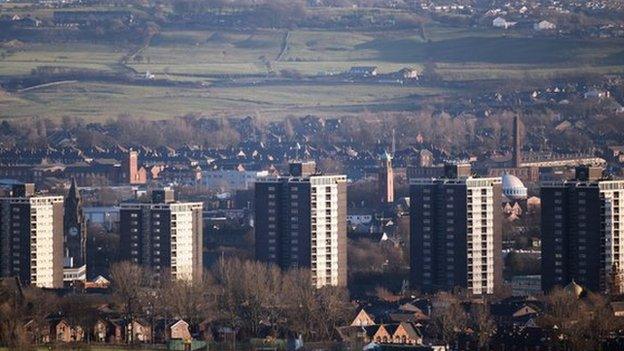Worst children's services face takeover, PM says
- Published

Mr Cameron will say the state is letting down the most vulnerable in society
Moves to make it easier to take over council children's services failing vulnerable youngsters in England have been announced by the prime minister.
Departments judged inadequate by Ofsted will be given six months to improve and then be taken over by high-performing councils and charities if they fail.
A handful of councils that were failing children are already run by trusts.
But the new measures will see the existing framework for takeovers speeded up and formalised.
Where departments fail to improve within six months of a poor Ofsted inspection, a new "commissioner" will be appointed and experts in child protection sent in.
In the past, where children's services have been taken over, the process has been far more "ad hoc", says the government.
It will now send experts in to three councils in a process that could see them run by independent trusts.
'Most vulnerable'
Sunderland children's services will become a voluntary trust and experts will be sent in to run the department, after inspectors from the care watchdog Ofsted found "serious and widespread" failings.
One child had been hurt by her father and a second had drowned in the bath, after concerns had not been properly dealt with, serious case reviews found. Sunderland said it did not "shy away from the criticisms".
Ofsted told BBC News that 19 out of 74 councils' children's services it inspected in England were found to be inadequate according to reports published between February 2014 and September 2015. None were found to be outstanding.
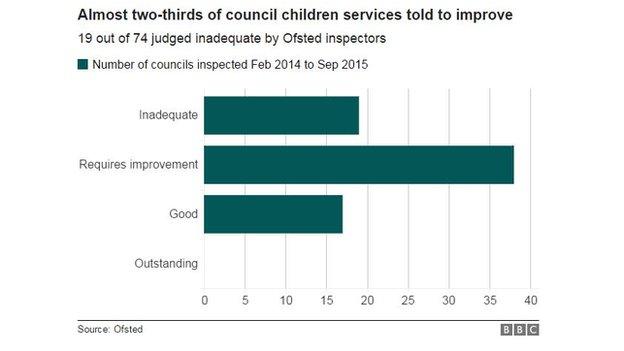
19 children's services rated inadequate

Analysis by Hannah Richardson
Struggling child protection services have been under the spotlight following a series of high-profile deaths of at-risk children such as Peter Connelly and Daniel Pelka.
And moves to take troubled services out of council hands are more a continuation of the direction of travel rather than a radical new step.
What David Cameron is really talking about is formalising and streamlining the process.
But the model the government wants to use is pretty much untested.
Eleven months after Doncaster was taken over by an independent trust, it is still deemed to be failing.
Some academics say with cuts biting at early intervention services and social services budgets, what is needed is better funding and a reduced case load, rather than a new structure.

Commissioners (new service leaders) will go into Norfolk and Sandwell children's services too, with a view to taking them over within a year. They have both been rated inadequate by Ofsted.
"We, the state, are their parents; and we are failing them," David Cameron said of society's most vulnerable.
"It is our duty to put this right," he added.
Many councils' failings have been exposed by a series of recent child abuse cases in Rochdale, Rotherham, Derby and Oxfordshire.
And children's services at Doncaster and Slough councils were taken over by independent trusts in September 2014 and October 2015 respectively.
Eleven months after the new trust took over Doncaster it was still deemed to be failing by Ofsted.
'High-calibre graduates'
Education Secretary Nicky Morgan told the BBC there would now be "much less tolerance of failure".
"Ofsted will go in and inspect more quickly, particularly if there are reports either of inadequacies in the way that the department is being run or we, obviously, receive intelligence from whistleblowers," she said.
"If necessary, they will appoint a trust, which is a not-for-profit organisation, which could be run by something like a community interest company or a charity to run the services to make sure they get back up to the level that the vulnerable children who rely on the protection of these services deserve."
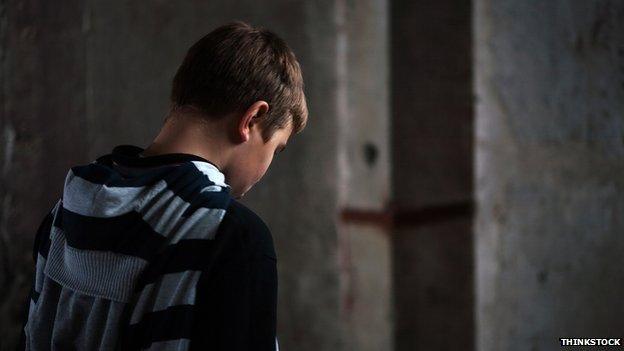
The changes are being hailed by Mr Cameron as landmark reforms of this Parliament
High-performing councils, including Hampshire, Leeds and Durham, child protection experts and charities will be asked to form the trusts to take over the worst children's services and will have powers to get rid of staff.
Like academy schools, such councils will be given greater freedom to make changes.
More than £100m is to be spent attracting high-calibre graduates into social work and new trust sponsors from the charity sector will be recruited to help deliver children's services.
"This will be one of the big landmark reforms of this Parliament, as transformative as what we did in education in the last," Mr Cameron will say later, at an event in south London.
NSPCC chief executive Peter Wanless welcomed the changes, saying too frequently services had failed to protect children.
"When this happens, swift action is an absolute priority to prevent tragedies that shame us all," he said.
"And we need to ensure that if tragedy does befall a child, that we then learn the lessons from serious case reviews, something that year after year is not done."
Barnardo's chief executive Javed Khan said: "There must be options, where it is best for the child, to use the expertise of the voluntary sector to complement those already in place."
Association of Directors of Children's Services president Alison O'Sullivan said services in some areas were not yet good enough and it was right to draw on the expertise of the strongest authorities.
"But there is more to improvement than simply changing structures," she said.
"Parallel to this lies the need for increases in demand to be met with adequate financial resources.
"Even with the closure of many children's centres and youth services, we still face a funding shortfall and we risk losing capacity in the system to prevent problems from escalating to a point beyond repair."
- Published26 November 2015
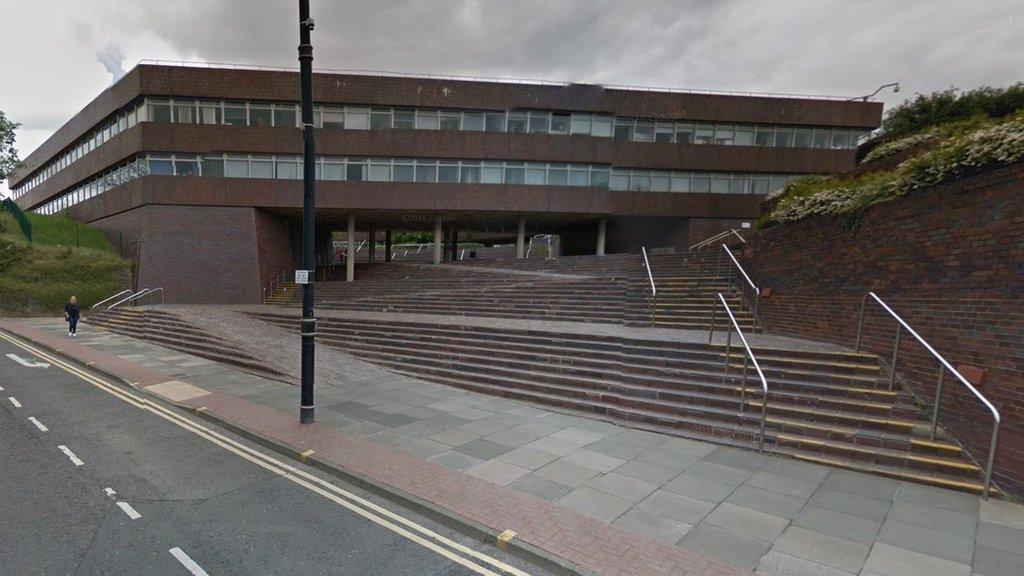
- Published20 October 2015
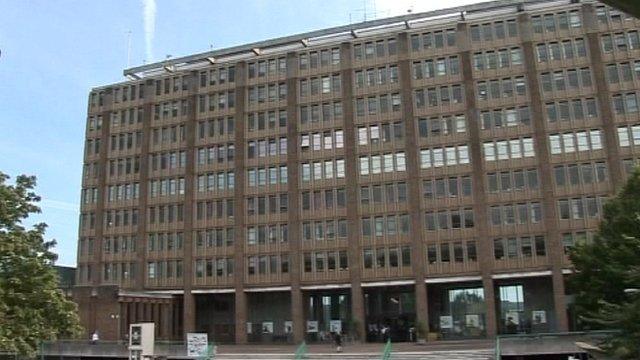
- Published5 June 2015
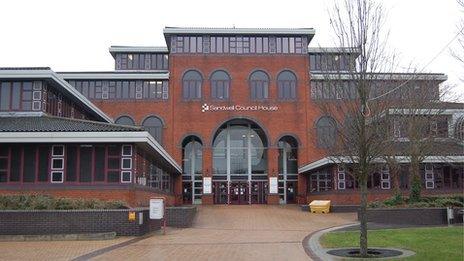
- Published23 November 2015
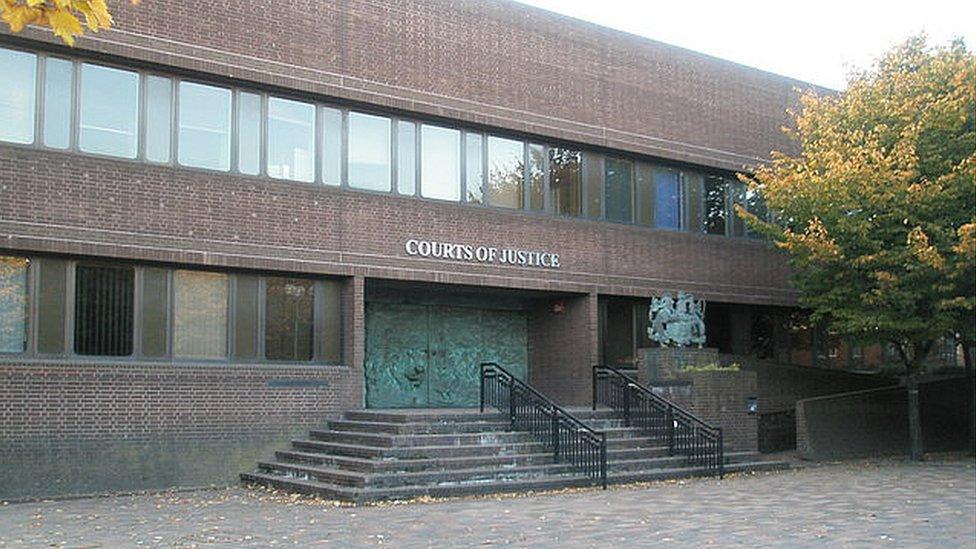
- Published17 May 2014

- Published19 November 2014
